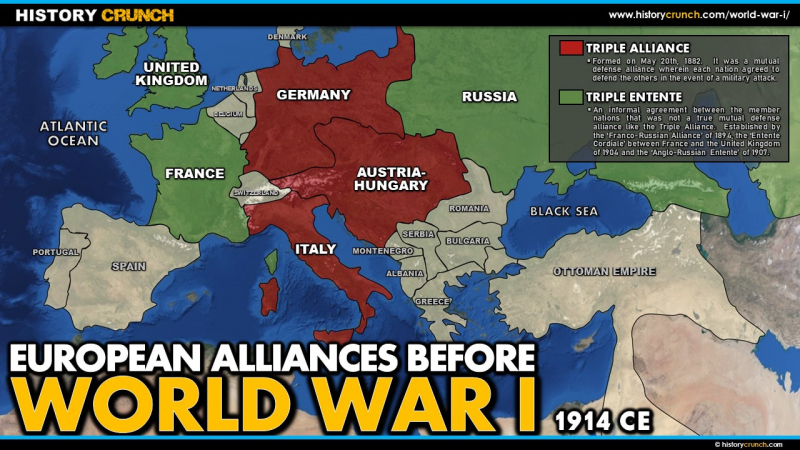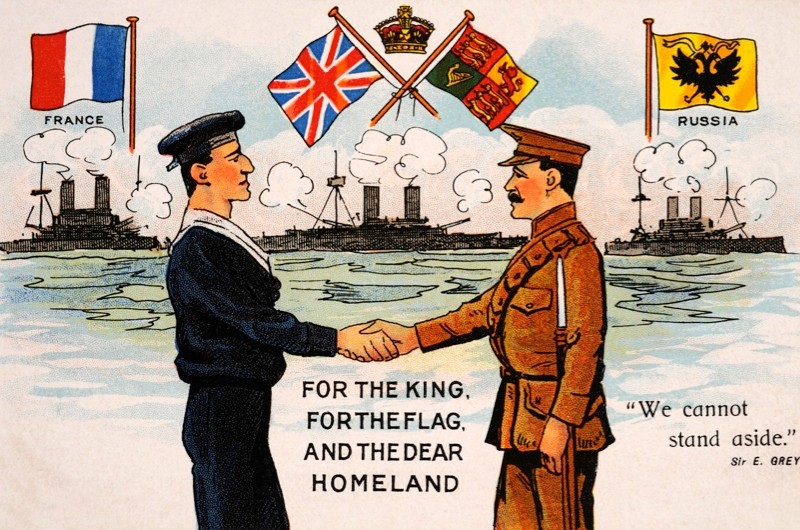Alliances

Alliances between nations, many of which were kept secret, are regarded as one of the major causes of the World War I. Alliances between states helped maintain a delicate balance of power in the competitive and uncertain political environment of the late 19th and early 20th centuries. Despite being designed as a defense strategy, the alliance structure ensured that any big political disagreements would eventually escalate to a large-scale battle rather than a minor one. In 1879, Germany and Austria-Hungary formed a Dual Alliance in response to Russia's victory over the Turks in 1878. When the Italians joined in 1882, it became a Triple Alliance.
In 1894, France and Russia formed their own Franco-Russian Alliance. They strengthened their diplomatic links by signing the Entente Cordiale with Great Britain in 1904, and the Anglo-Russian Convention in 1907. The Triple Entente was born out of these interwoven accords. After Austria-Hungary declared war on Serbia, the alliance system kicked in right away. On the 30th of July, Germany declared war on Russia, and on the 3rd of August, it declared war on France. Following that, they invaded Belgium. After pledging support to Belgium in the 75-year-old Treaty of London, Britain declared war on Germany on August 4th. Finally, Austria declared war on Russia on August 5th. Thus, due to the alliance system, all the major powers soon entered the conflict, escalating it into a World War.











